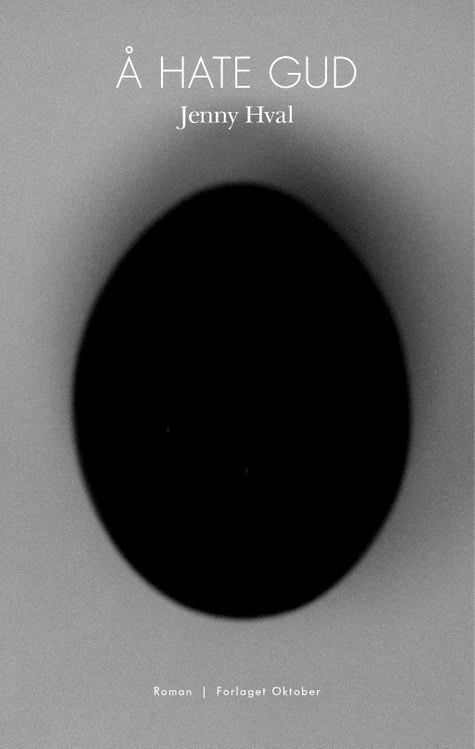“Jenny Hval’s second novel is the self-mocking tale of her escape from Norway’s Bible Belt … Girls Against God is anti-bourgeois and feminist, soaked in conviction and rage; in this, it’s like Paradise Rot (2018), Hval’s first novel. But a novel like this, like another mind, can be read at multiple depths.”
4/5 stars, Sunday Telegraph, UK
“Reading Girls Against God, the second book by Norweigian multidisciplinary artist Jenny Hval, feels like stepping into one of her songs, complete with witch covens, bloody rituals, and yonic structures. The genre-warping novel hopscotches between time and place, beginning in a small town in southern Norway at the cusp of the black metal scene, then to Oslo and beyond. The protagonist is a moody teen, numbed by her small-town existence and riddled with angst. Hval does well as tracking the grotesque banalities of human existence by using a radical fusion of queer feminist theory and experimental horror to guide her growth, and the plot, however non-linear it might be. The result is a unique treatise on magic, writing, and art that’s just in time for spooky season.”
Dazed, UK
“Hval pulls off a minor miracle in sticking to this anti-narrative premise and making it work. … a more important aspect of the novel’s success is Hval’s undeniable writing talent. When I describe her work as ‘philosophical’, I don’t intend to connote it being dry or purely intellectual; on the contrary, it is laced throughout with powerful urban imagery and striking turns of phrase. I find real pleasure here in Hval’s natural lyricism and her emergent, spontaneous style. … while certainly not perfect, Girls Against God is original, powerful, and successful enough (even with its incredibly unlikely premise) to make it a much higher work of literature than any typical genre story.”
Pop Matters, US
“a call to revolution … The Norwegian musician rebels against blandness and convention in a novel that veers from melodramatic teenscape to social panorama … There’s still a lot that is endearing and even riveting about Girls Against God. Hval is unembarrassable, talking about her “wet dream of writing myself into a story” … By the close of Girls Against God, the boundaries between reality and film, the corporeal and the fantastic, the coagulated and the fertile have all dissolved. The novel has journeyed from melodramatic teenscape to horror-saturated social panorama. A story that had seemed pointedly provincial has now sprouted universal wings.
Guardian, UK
“The effect of this merging of the real and imagined is what sustains the second half of the novel, which feels reminiscent of Samanta Schweblin’s Fever Dream, though with different subject matter. The sense of horror is the same; something coming unravelled, and the difficulty in finding the ‘real’ beneath the imaginary. It’s a rejection of so many things, underpinned by the hatred of God – a patriarchal God; one of constricted religion, of men, of conservatism. Though not an easy read, this is a truly transgressive one.”
Severine, Scotland
“… on its surface bleak and unforgiving and yet beneath that impression there is a second story about the strength and solidarity of despised women”
Morning Star, UK
“Girls Against God covers every angsty young woman’s favourite subjects. Witchcraft, heavy metal, viscera, and hatred. It’s a book in the grand tradition of Kathy Acker and women surrealists everywhere, dancing through space and time into different dimensions … Whatever you say about Girls Against God, it’s never boring”
theartsdesk.com
“Jenny Hval’s novel offers literary witchcraft of the highest quality … a tribute to ‘donning black’, to transcendence through darkness as an alternative to light’ … The novels whirls between genres, like a snake sheds its skin. It is close to the autobiographical, but is above all a tribute to the creative power of destruction … Hval’s prose has a lot of musicality. The story gravitates towards its own collapse, and towards a dreamlike ending, where everything seems transparent and impenetrable at the same time … a book disguised as a film, a diary insisting on being made up. A Chinese box that possibly leads to a Japanese temple, far away from the white painted wooden houses along the coast”
Klassekampen
“Hval’s novel (which I’m occasionally tempted to call a manifesto) shows how it’s possible to mobilize hidden forces, to quite simply (or quite difficultly) pick at taboos: Hate and the sisterhood of hate, analogous with witchcraft, with blood and the community of the body, which Hval has emphasized so strongly elsewhere … In music like in the novel, it’s about finding a language that can express the unknown, or name what is beyond names; what blocks understanding, and what opens up for it. And in this insistent exploration of what ties us together and what ties us down, Jenny Hval is in a class of her own”
Bokvennen Litterær Avis
“There are not many artists who seem to be in touch with a reservoir of wild, free and profane imagination, but Hval is definitely one of them.”
Susanne Christensen, Klassekampen, Books of the year 2018
“Powerful prose and an including attitude … you can regard this book as a piece of music, a fugue, where different stories and themes are woven together. Sometimes they are layered on top of each other, at other times a theme returns, creating recognition and dynamics … Hval’s novel is a rowdy, though-provoking, including and intelligent investigation into themes that we all should consider more often”
Dag og Tid

